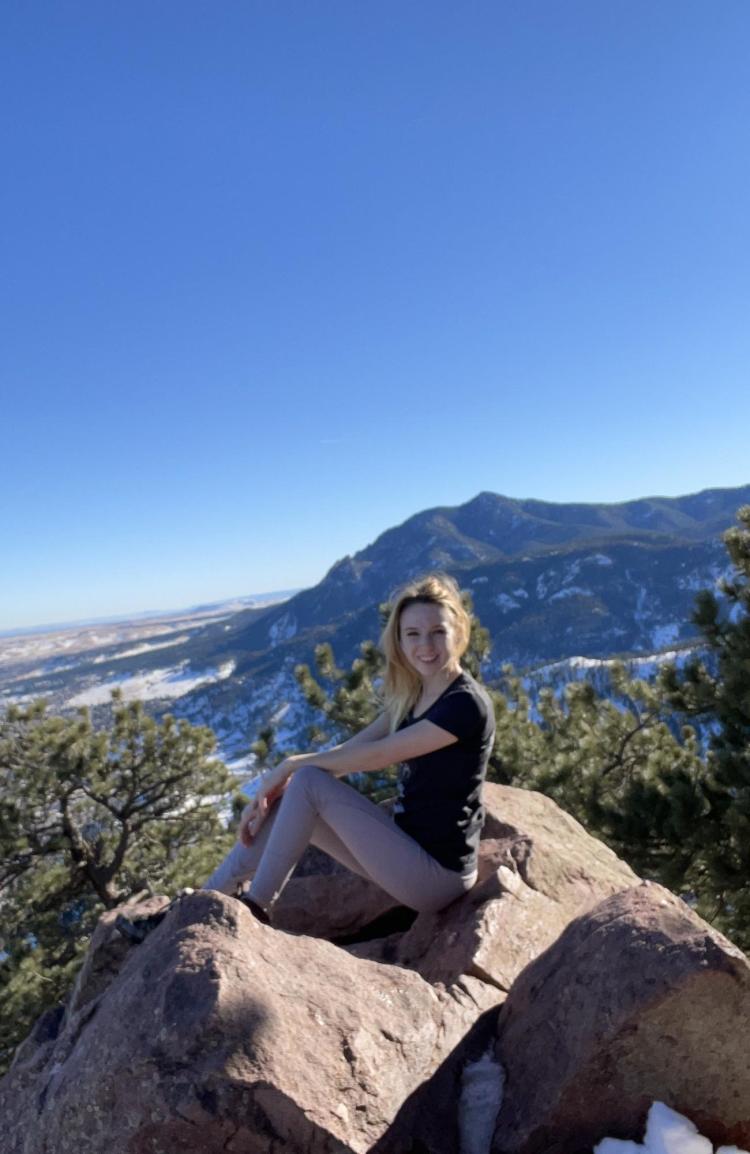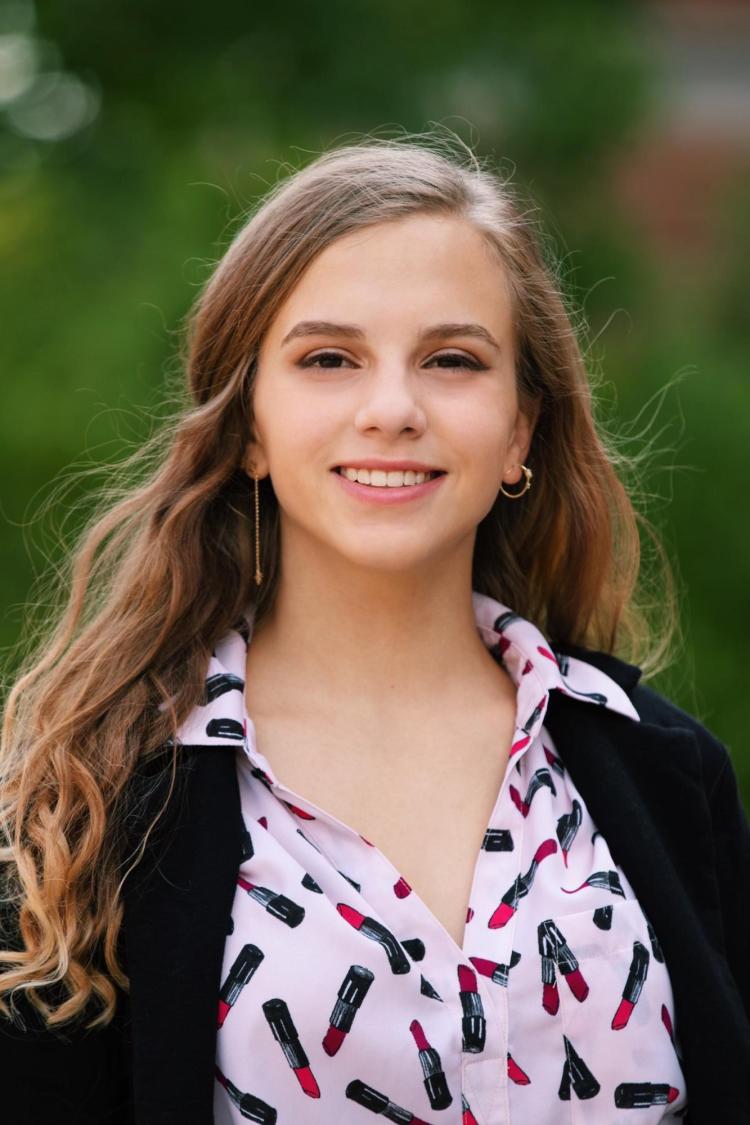2 CU Boulder students named Astronaut Scholars
CU Boulder students Alexandra “Sasha” Gladkova and Maya Palmer have each been awarded a $15,000 scholarship from the Astronaut Scholarship Foundation (ASF).
The merit-based ASF scholarship is the largest known monetary award of its kind given in the United States to science and engineering undergraduate students. This year, CU was selected by ASF to have two Astronaut Scholars each year for the next seven years. Funded through a $1 million grant from Blue Origin’sClub for the Future, the additional scholarship is part of ASF’s new Founders for the Future program.
Gladkova is a junior aerospace engineering major, with minors in computer science and applied math, while Palmer is a senior neuroscience and psychology major.
All incoming Astronaut Scholars also are invited to attend the ASF Innovators Week & Gala Aug. 24–28 in Orlando, where they’ll be recognized for their achievements and receive their award. An astronaut will present each scholar with their award on stage during the gala.
The Mercury 7 astronauts, including Boulder native Scott Carpenter, who died in 2013, created the foundation in 1984. The purpose was to aid the United States in retaining its world leadership in science and technology by providing scholarships to the brightest college students pursuing these degrees. The Mercury 7 astronauts have since been joined by more than 100 astronauts from the Gemini, Apollo, Skylab and space shuttle programs who use their joint credibility to encourage students to pursue scientific endeavors to keep the U.S. a leader in technology. This year the ASF awarded 68 scholarships to students from 45 different schools across the nation.
CU Boulder sophomores and juniors engaged in research and majoring in math, science or engineering and seeking nomination for an ASF scholarship should email Deborah Viles at viles@colorado.edu. The campus selection will take place in the early spring semester.
 Meet CU Boulder Astronaut Scholar Maya Palmer
Meet CU Boulder Astronaut Scholar Maya Palmer

Major and hometown
I am a neuroscience and psychology major from Denver.
Campus research
I worked in the Saddoris Lab for three years of my college experience. In that amount of time, I gained a close relationship with behavioral neuroscience that I am extremely grateful for. I was particularly interested in compulsive drug-seeking behavior in the brain. My experiment’s first goal was to find an accurate representation of compulsive behavior in rats that could translate to human experience.
Secondly, my experiment tested important brain regions involved in decision-making, such as the prefrontal cortex and nucleus accumbens, and their relationship to compulsive behavior.
Lastly, I used these experiments to gain a better understanding of substance use disorder in the brain, in hopes of providing elucidating information for human treatment.
How did you get interested in your research area?
My first interest in research was piqued when I watched a Ted Talk by Steve Ramirez and Xu Liu. In this Ted Talk they discussed an experiment they conducted using a neuroscience technique called optogenetics. Simply put, optogenetics is a technique that neuroscientists use to switch brain cells on and off, by doing so we can isolate specific brain areas to test their function.
When I watched this Ted Talk in high school I had become so fascinated by the process I wrote my high school thesis on it. When I began college and learned I could assist in experiments like the one Ramirez and Liu had completed, I was so excited. Two years later I was conducting optogenetics myself.
What’s next?
Once I complete my degrees at CU I plan to apply to medical school with a priority of clinical research. In the clinical research I am participating in now, I have observed that practitioners who conduct research have an inspiring level of compassion for solving and discovering better ways to treat the patients they see every day. I hope to emulate that in my experiences as a doctor.
 Meet CU Boulder Astronaut Scholar Sasha Gladkova
Meet CU Boulder Astronaut Scholar Sasha Gladkova

Major and hometown
I am an aerospace engineering major, with minors in computer science as well as applied math. I grew up in Fairfax, Virginia, but my parents are from the USSR, and I am Ukrainian/Russian.
Campus research
I am involved in many projects. During summer of 2021, I conducted binary black hole accretion disk research at NASA Goddard Space Flight Center. I analyzed simulation data to discover the steady state of this type of disk and am now in the process of writing and publishing a research paper on it.
Beforehand, I began my on-campus journey in May 2020, when I joined Guy Stringfellow's research team. My role was to man the ARCSAT telescope during night shifts, to search the sky for transient events. In the fall of 2021, I joined Ann-Marie Madigan's team, working with her postdoc, Angela Collier, on analyzing computational galaxy evolution simulations involving dark matter halos in order to view and interpret their interactions with rotating gaseous and stellar disks.
This summer, I am developing activity planning and data model software for the Europa Clipper spacecraft mission at NASA’s Jet Propulsion Lab.
How did you get interested in your research area?
My family has always been scientifically inclined. I take my biggest inspiration from my grandfather, Igor I. Novikov. His advancement of knowledge in the astrophysics and theoretical physics communities is something I honor and hope to replicate. My mother, Elena Novikova, also has a PhD, and together with my father, who works as a lead electrical engineer on satellites, sparked my interest in space science very early.
One of the first moments I realized I want to pursue a career in space was at one of my father’s "take your child to work day," where I got to fully suit up and tour a satellite assembly room (clean room). Every human has wondered about what is special about them, special about Earth, and what we don’t know. My interest lies in my work providing a tangible insight into these things, and this further motivates me to take my place alongside others pursuing such questions.
What’s next?
I hope to continue to be involved in many different projects, and bridge the intersection of scientific research and applied engineering. My goal is to absorb new information, challenge myself and excel in my classes, but of course I will prioritize my mental and physical health. For now, I will be either continuing my research at a lab on campus or extending my internship into the school year.
Once I graduate from undergrad, I am looking to pursue a higher degree with an advisor who aligns with my interests, or work in industry for a brief period before returning to school. My goals are abstract, in order to allow for a range of possibilities; I'll just have to see what opportunities I will attain.


